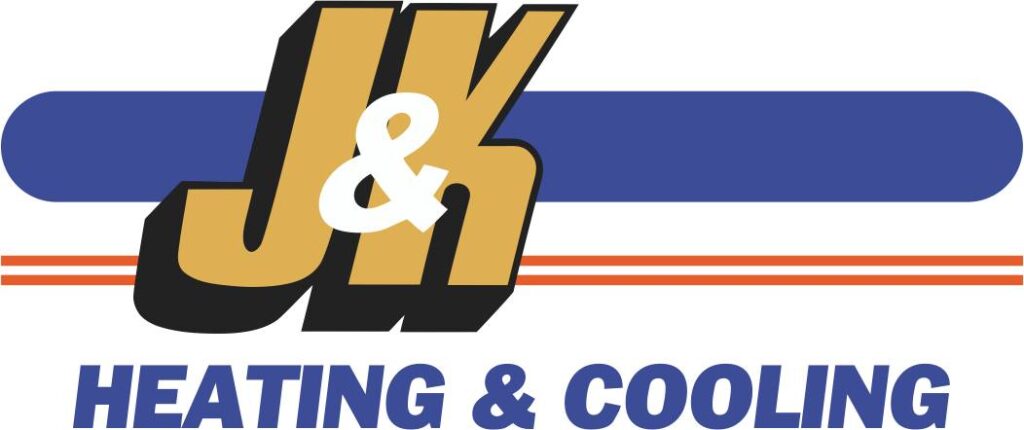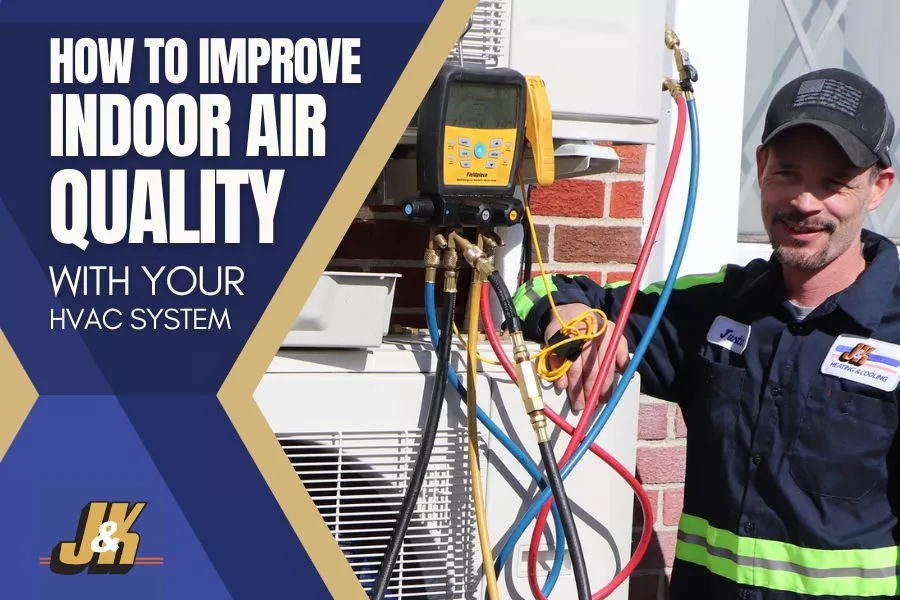Indoor air quality (IAQ) represents the overall condition of the air inside buildings and structures, including homes, offices, schools, and other enclosed spaces. It is a crucial aspect of our well-being, as we spend significant time indoors. IAQ refers to airborne pollutants, such as dust, pet dander, pollen, mold, and volatile organic compounds (VOCs). These pollutants can harm our health, causing respiratory issues, allergies, fatigue, headaches, and even more severe conditions in the long term.
Maintaining good indoor air quality ensures a healthy and comfortable living environment, minimizing the risk of illness and promoting overall wellness. To achieve this, proper ventilation, regular cleaning, controlling sources of pollutants, and monitoring indoor humidity levels are essential. With increasing awareness of the importance of IAQ, individuals, and organizations are striving to adopt measures that enhance indoor air quality, ensuring healthier and safer spaces for everyone.
The Benefits of Good IAQ
Good indoor air quality (IAQ) is crucial for maintaining a healthy and productive environment. It has numerous benefits that positively impact health, productivity, and energy efficiency.
Good IAQ promotes better health.
Poor IAQ can lead to respiratory issues such as coughing, shortness of breath, and asthma attacks. On the other hand, good IAQ reduces the risk of these respiratory issues by ensuring clean and fresh air. It also helps alleviate allergies caused by dust, pollen, and other airborne allergens. Breathing in clean air makes individuals less likely to experience respiratory discomfort or allergic reactions.
Good IAQ enhances productivity.
High levels of carbon dioxide and other pollutants can impair cognitive function and decrease productivity. Good IAQ, which includes proper ventilation and the removal of pollutants, ensures a fresh and clean environment. This helps minimize fatigue and improve alertness, leading to increased productivity and concentration.
Good IAQ contributes to energy efficiency.
Properly designed and maintained ventilation systems provide a controlled exchange of indoor and outdoor air, which helps in reducing energy waste. By optimizing airflow, heating, and cooling systems, energy consumption can be reduced, resulting in lower energy bills and a smaller carbon footprint.
Good IAQ plays a crucial role in preventing the spread of airborne diseases.
Airborne diseases like the flu, common cold, and COVID-19 can spread rapidly in enclosed spaces with poor ventilation. Good IAQ ensures proper airflow and filtration, reducing the concentration of infectious particles in the air. This helps prevent the transmission of airborne diseases and maintains a healthier environment.

Adverse Effects of Poor IAQ
Poor indoor air quality can adversely affect individuals and their surroundings. Firstly, it can pose significant health risks. Exposure to particulate matter, volatile organic compounds (VOCs), and mold can lead to various respiratory issues, including coughing, wheezing, asthma attacks, and allergic reactions. Prolonged exposure to these pollutants can also result in chronic health conditions such as chronic obstructive pulmonary disease (COPD) and even increase the risk of developing cancer and heart disease.
In addition to the adverse health effects, poor indoor air quality can impact productivity. When individuals are exposed to pollutants, their concentration and cognitive performance can be significantly affected, leading to reduced productivity and performance in both the workplace and home environment. Furthermore, poor indoor air quality can result in increased absenteeism, as individuals may be more susceptible to illness and require time off work or school to recover.
Another significant impact of poor indoor air quality is its effect on energy bills. Conditions such as inadequate ventilation and insulation can lead to pollutants and excessive moisture buildup, increasing the energy required to cool or heat a space. This can result in higher energy consumption and, subsequently, higher energy bills.
It is crucial to address indoor air quality in the workplace and the home environment. A healthy indoor environment can promote employee well-being, reduce absenteeism, and increase productivity. Similarly, improving indoor air quality in homes can contribute to a healthier living environment and reduce the risk of developing chronic illnesses associated with poor IAQ.

HVAC System and IAQ
The HVAC System and Indoor Air Quality (IAQ) provide comfortable and healthy building environments. HVAC, which stands for heating, ventilation, and air conditioning, is a system that controls the temperature, humidity, and air quality within a space. IAQ, on the other hand, refers to the air quality inside a building, and factors like ventilation, filtration, and pollutant sources influence it.
Maintaining a well-functioning HVAC system and ensuring good IAQ is essential for the well-being of occupants, as poor IAQ can lead to health problems, reduced productivity, and discomfort. This article will delve into the importance of HVAC systems and IAQ, exploring their impact on human health, energy efficiency, and overall occupant satisfaction.
Potential Sources of Pollution in Your Home’s Air Supply
The air supply in our homes can be contaminated by various sources, contributing to indoor air pollution. Understanding these potential sources is crucial for maintaining a healthy living environment.
One of the main contributors to air pollution is dust particles. These microscopic particles include dead skin cells, pollen, and dirt, which can easily be inhaled and cause respiratory problems. Another common source is mold, which thrives in damp and poorly ventilated areas. Inhaling mold spores can lead to allergies, asthma, and other respiratory issues.
Pet hair is another significant source of air pollution, especially for those who have furry companions. Pets shed hair, dander, and saliva, all of which can become airborne and trigger allergic reactions.
Volatile Organic Compounds (VOCs) are chemicals in everyday household products, such as cleaning agents, paints, and furniture. These compounds can be released into the air, causing headaches, dizziness, and long-term health problems. Additionally, viruses, bacteria, and fungi can contaminate indoor air and pose health risks.
To minimize air pollution, it is essential to address these potential sources. Regular dusting and vacuuming, controlling moisture to prevent mold growth, keeping pets groomed, using natural and low VOC products, and ensuring proper ventilation are all practical measures to improve the quality of the air circulating in our homes.
Potential Sources of Pollution in Your Home’s Air Return System
Potential sources of pollution in a home’s air return system can arise from various sources within the living environment. These sources can significantly impact indoor air quality and contribute to the presence of harmful pollutants.
One common source of pollution is outdoor air contaminants. These can enter the air return system through vents, open windows, or doorways. Outdoor pollutants such as vehicle emissions, pollen, dust, and industrial pollutants can infiltrate the system and circulate throughout the house.
Additionally, household activities can introduce pollutants into the air return system. These activities include cooking, cleaning, smoking, and using certain household products. When these pollutants are released, they can be pulled into the air return system and dispersed throughout the home.
Specific pollutants in the air return system include particulate matter, volatile organic compounds (VOCs), carbon monoxide, and radon. Particulate matter consists of solid or liquid particles suspended in the air, such as dust, pollen, and pet dander. VOCs can come from various sources, including cleaning products, paints, and furniture. Carbon monoxide, a colorless and odorless gas, can be emitted from malfunctioning heating systems or appliances. Lastly, radon, a radioactive gas, can enter the home through cracks in the foundation.

Steps to Improve Indoor Air Quality with Your HVAC System
Indoor air quality dramatically impacts our overall health and well-being. With the HVAC system playing a crucial role in maintaining comfortable and healthy indoor environments, it is essential to improve air quality.
Following simple measures, you can ensure fresh and clean air circulation, reducing the risk of allergies, asthma, and other respiratory problems. This article will explore the steps you can take to improve indoor air quality with your HVAC system.
Install Air Filters and Change Them Regularly
Installing air filters in your HVAC system and changing them regularly according to the manufacturer’s recommendations is paramount. These filters play a crucial role in improving indoor air quality and preventing the circulation of contaminants throughout your living or working space.
Air filters in your HVAC system are designed to capture and trap airborne particles such as dust, pollen, pet dander, and other pollutants. By removing these contaminants, air filters help to create a healthier environment and reduce the risk of respiratory issues and allergies. They also prevent these particles from accumulating in your HVAC system, thus increasing its efficiency and longevity.
Regularly changing air filters is essential to ensure their optimal performance. Most manufacturers recommend changing filters every 30 to 90 days, depending on factors such as the filter type, the amount of pollutants in your environment, and the usage of your HVAC system. Neglecting this maintenance task can result in clogged filters, reducing airflow and stressing the entire HVAC system. This can lead to decreased energy efficiency, increased energy bills, and potentially expensive repairs.
Consider Installing a Humidifier or Dehumidifier
When determining whether to install a humidifier or dehumidifier in an office building, assessing the current humidity levels is essential. This can be done using a hygrometer, a device that measures the amount of moisture in the air.
If the humidity levels are above 60%, it is recommended to install a dehumidifier. High humidity can lead to dampness, which creates a breeding ground for mold and dust mites. This can cause employees’ allergic reactions and respiratory issues, resulting in poor indoor air quality. A dehumidifier removes excess moisture from the air, reducing the risk of mold growth and improving overall air quality.
On the other hand, if the humidity levels are below 30%, a humidifier should be considered. Low humidity can cause dryness in the air, leading to dry skin, throat irritation, and difficulty breathing. A humidifier adds moisture to the air, preventing these issues and promoting a more comfortable and healthy environment.
Both humidifiers and dehumidifiers play a crucial role in maintaining optimal indoor air quality. These devices can help prevent health issues such as allergies, asthma, and respiratory infections by controlling humidity levels. They also help preserve the structural integrity of the building by preventing mold growth and protecting wooden furniture from warping or cracking.
Have Your HVAC System Professionally Inspected and Serviced Regularly
Having your HVAC system professionally inspected and serviced regularly is imperative for maintaining its proper performance, improving indoor air quality, preventing damage and leaks, increasing the system’s lifespan, and saving energy costs.
First and foremost, regular inspections and servicing by a professional ensure that your HVAC system is functioning at its optimal level. This will provide you with the comfort you desire and ensure that your system is running efficiently, saving you money on energy costs in the long run.
Improving indoor air quality is another crucial aspect of having your HVAC system regularly serviced. Over time, dust, debris, and allergens can accumulate in the system, leading to poor air quality and potential health problems. A professional inspection and thorough cleaning will remove contaminants, allowing you and your family to breathe cleaner and healthier air.
In conclusion, maintaining and enhancing your indoor air quality should not be an afterthought. It’s a vital aspect of your home or office environment that directly influences your health and comfort. Don’t compromise on your well-being! Call J&K Heating and Cooling at 734-587-3184 today and let our experienced professionals ensure your HVAC system is operating at its peak, providing you with the excellent indoor air quality you deserve. Remember, your air quality is our priority!





